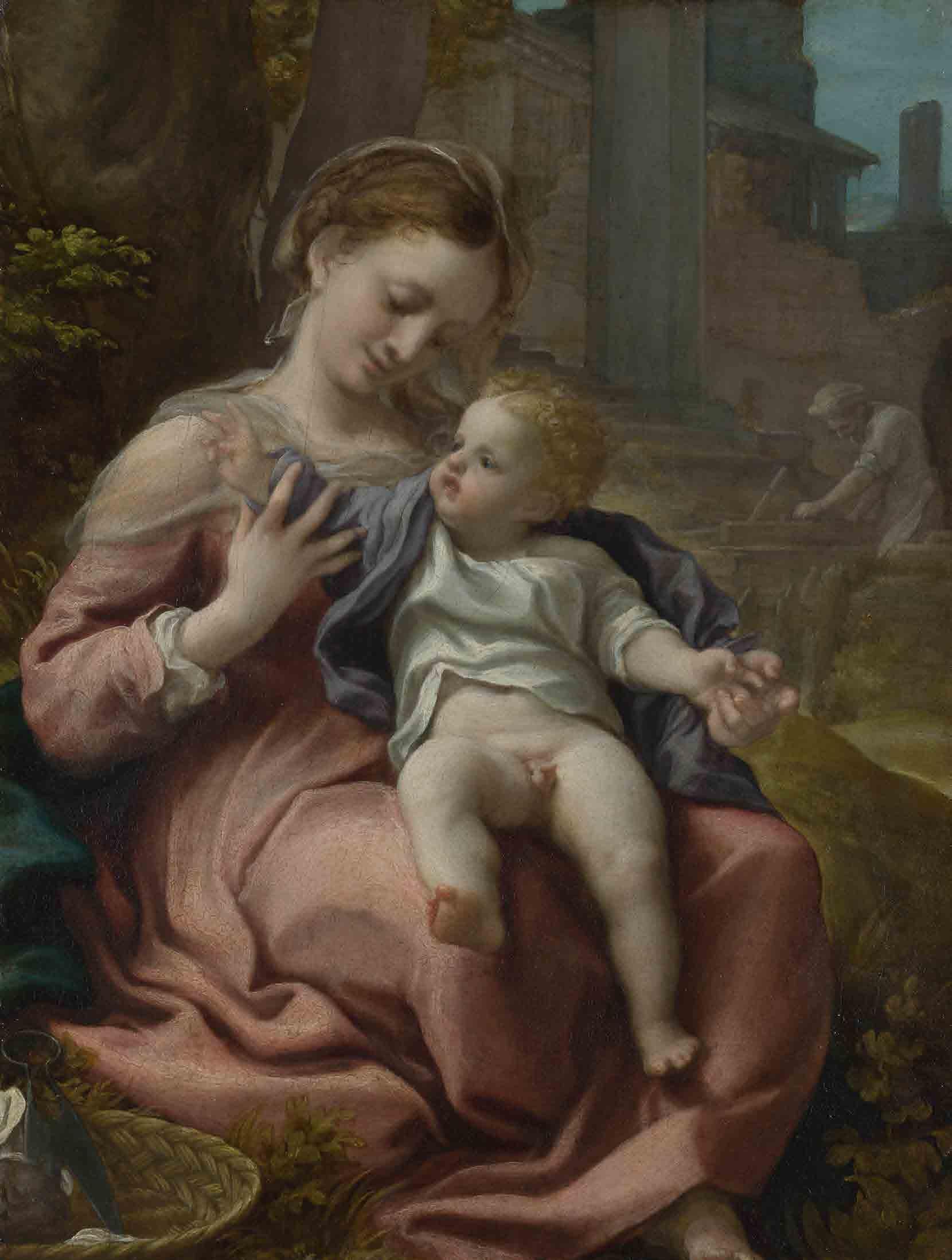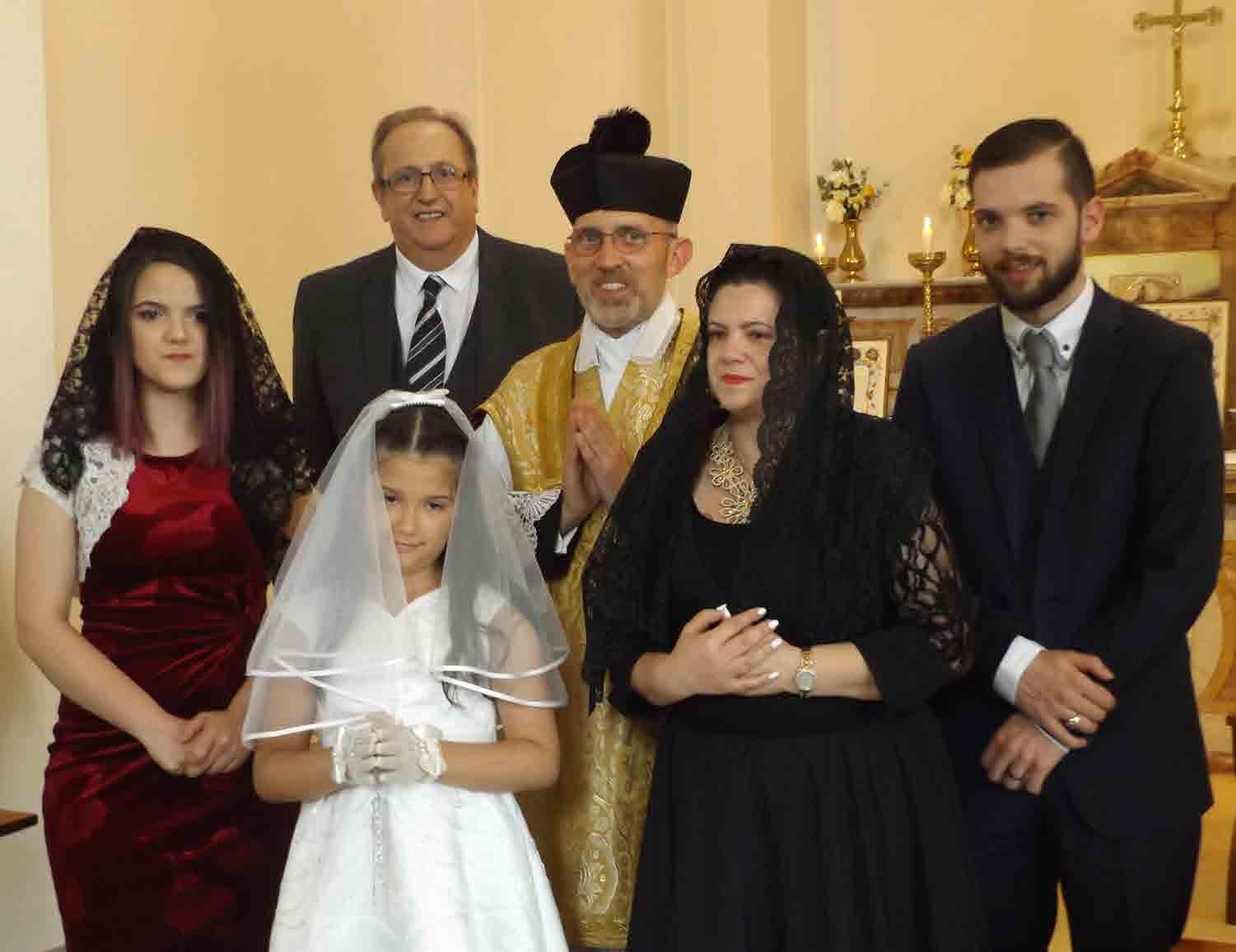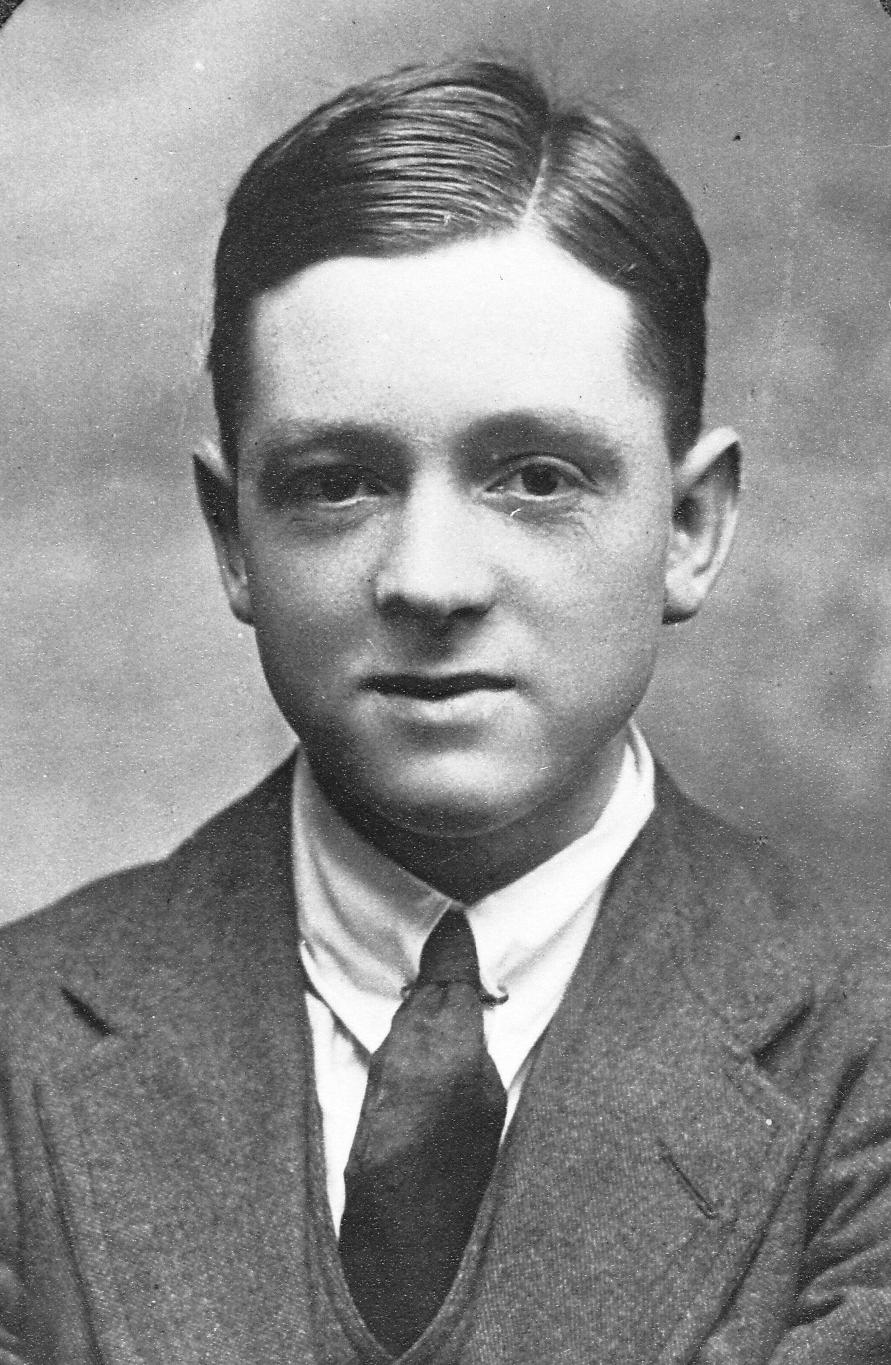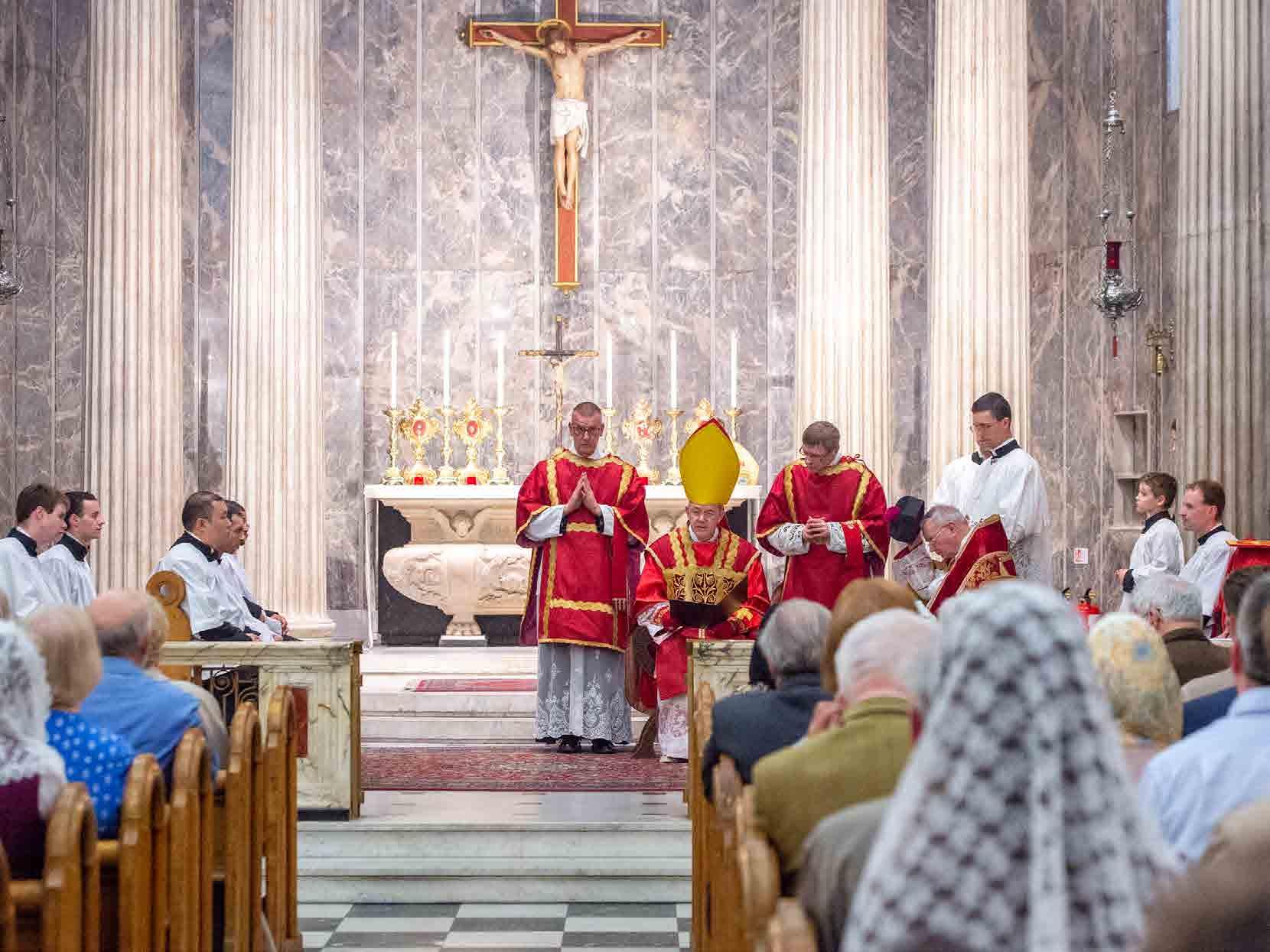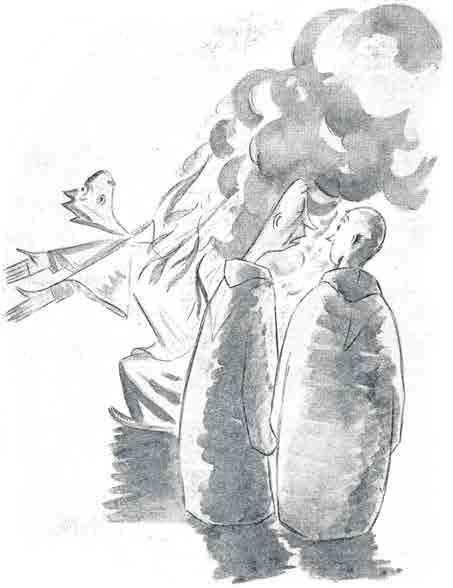FEATURE
Eucharistic indifference The complete restoration of Eucharistic reverence is essential to the integrity of the Church, says Laurence England
C
ardinal Marx of the Archdiocese of Munich and Freising has sent shockwaves through the Church with his proposal to grant to Protestant spouses of Catholics, 'in some cases', admission to the Sacrament of the Holy Eucharist without their coming first into full Communion with the Catholic Church. The Pope has given mixed messages over the proposal, one negative and formal through the CDF, another less negative and informal, through an airplane interview. Despite resistance from the Congregation for the Doctrine of the Faith it appears Cardinal Marx, with some bishops, is prepared to push ahead. I find the Cardinal's proposal shocking and bewildering, as it diverges completely from Sacred Tradition, but as a convert, from my varying experiences of pastor's care for the dignity of the Holy Eucharist, perhaps his is a natural development in an age and culture of widespread ignorance of and indifference to the Church's greatest treasure, our Eucharistic Lord. I’ve been a Catholic for 17 years, converting to the Catholic Faith at Pentecost in 2001. To my mind, that time has passed very speedily, as if, as the psalmist says, ‘in a sigh’ (Ps.90:9). Since then, there have been times during Mass when I wonder how I ‘ended up here’; often while altar serving at the Holy Liturgy, and especially nearing the Consecration, amid a haze of incense. The thought has passed like a wisp, a cloud through my mind: ‘How did I get here?’ How did I get from not being here, present at the Sacrifice of the Mass, to here, present at the most sublime mystery? I am certain that for many converts to the Catholic Faith, there is no answer to the question that is adequate, perhaps no one thing that led them to the Catholic Church or a deepening of faith, though perhaps one phase, one profound moment could be cited. Few, however, could tell all, for how can we tell all? The all is in the All, in the Heart of God Himself.
44
As a convert, while eager to read and learn much about the Faith, I had very little, though perhaps a fragment of devotion to the Blessed Sacrament. I was never during my instruction told to receive Our Blessed Lord kneeling, or on the tongue. Certainly, nobody instructed me whether there was a more venerable or appropriate way to receive the Holy of Holies. I am certain that my own Eucharistic impiety was a decisive role in the various ways I continued to offend God through a lifestyle in my twenties and thirties that was not recognisably Christian. What progress I have made out of a lifestyle that, looking back, I can only describe as libertine, I put down to the teaching and example of a parish priest I met shortly after my reception into the Church. A great deal of nonsense is currently talked about ‘pastoral care’. My own experience, as a then young man looking for direction, was that admonition was what was lacking more than anything else in the Church. This work of spiritual mercy, along with that of instructing the ignorant sounds so obvious, it is not alien to other religions either, but in large parts of the Church it is probably seldom happening. Today, I am easily agitated and scandalised when I see Catholic clergy or laity fail to genuflect towards the Tabernacle when passing across it, but at that time, in my twenties, I do not believe I did so, or, if I did, I did it very unthinkingly, never pausing a moment to consider the One in the Tabernacle. Yet, I am only scandalised now by indifference to the Blessed Sacrament because I was taught by one who spoke with authority. I recall one Mass when the priest with the ciborium in his hands walked past me while I was serving on the sanctuary as he made his way back to the Tabernacle. I was a new server, and wasn’t kneeling in the presence of the Lord. It hadn’t struck me to kneel. He looked at me, a little fiercely, and plainly
insisted that I kneel. I am so glad he did that. Over a longer period, he taught the congregation about the importance of Ad Orientem worship, instructed us as to why it had been the Church’s perennial feature of worship to face East, towards where the Risen Lord will come in glory on the Last Day. I would say, in fact, that most of his teaching has been Eucharistically-orientated and driven. His teaching has borne fruit. The culture of Eucharistic reception has changed dramatically simply by his example and that of parishioners. The vast majority of the congregation now kneel to receive the Lord, something that you simply won’t see in the vast majority of English parishes. It isn’t that the priest has demanded they do so, but rather that he taught us in word and deed. It will suffice to say, then, that such a priest, though precious I am sure in the eyes of those to whom he ministers and, even more importantly, to the Lord Jesus Himself, is an exception today, and by no means the norm. Those who champion the Most Holy Eucharist in various ages, including our own, always have to confront those who deny the Reality of the Mass and of the True Body and Blood of the Lord. Despite the liturgical changes of the 1960s, great and ardent defenders of the Most Holy Eucharist have always been exceptional. They are rarely the norm. Those who cling to Jesus in the midst of storms and persecutions are never the norm, they are always extraordinary men and women. During the Reformation in England and Wales, those who stood up for the Truth of the Most Holy Faith against an evil king were a minority, nor a majority, among laity, clergy and most markedly, among the episcopate. Summorum Pontificum When was released, again, a minority of priests learned to celebrate the Usus Antiquior, including our parish priest. He celebrated it for as long as he was physically able, a time that, for now,
AUTUMN 2018









